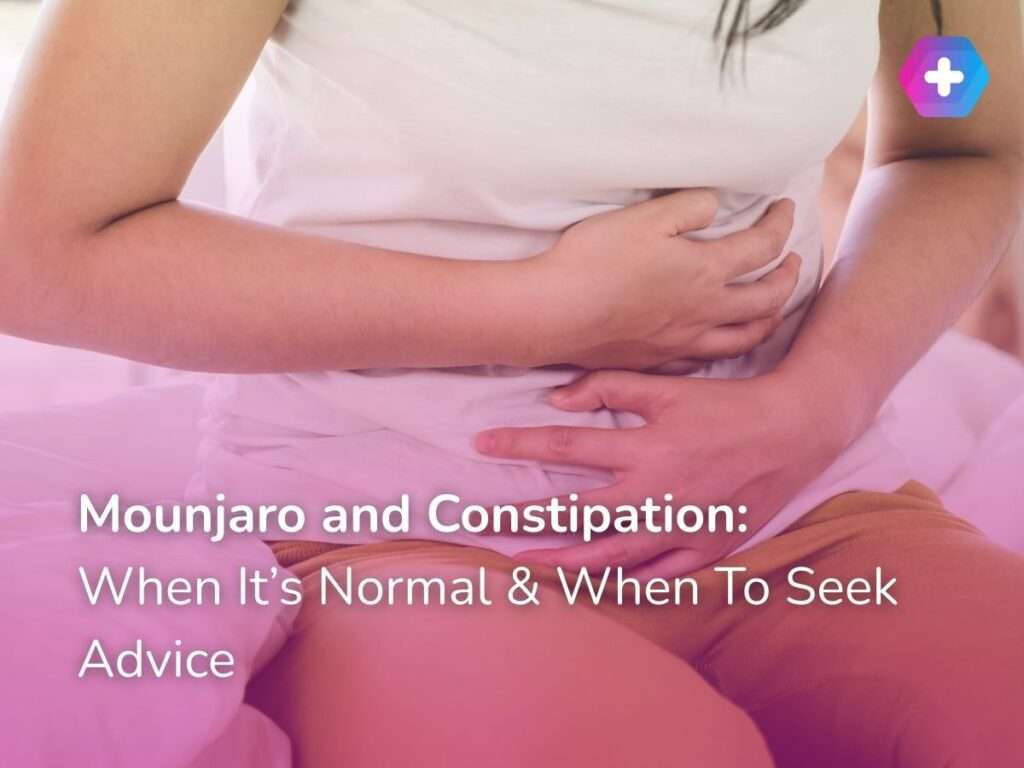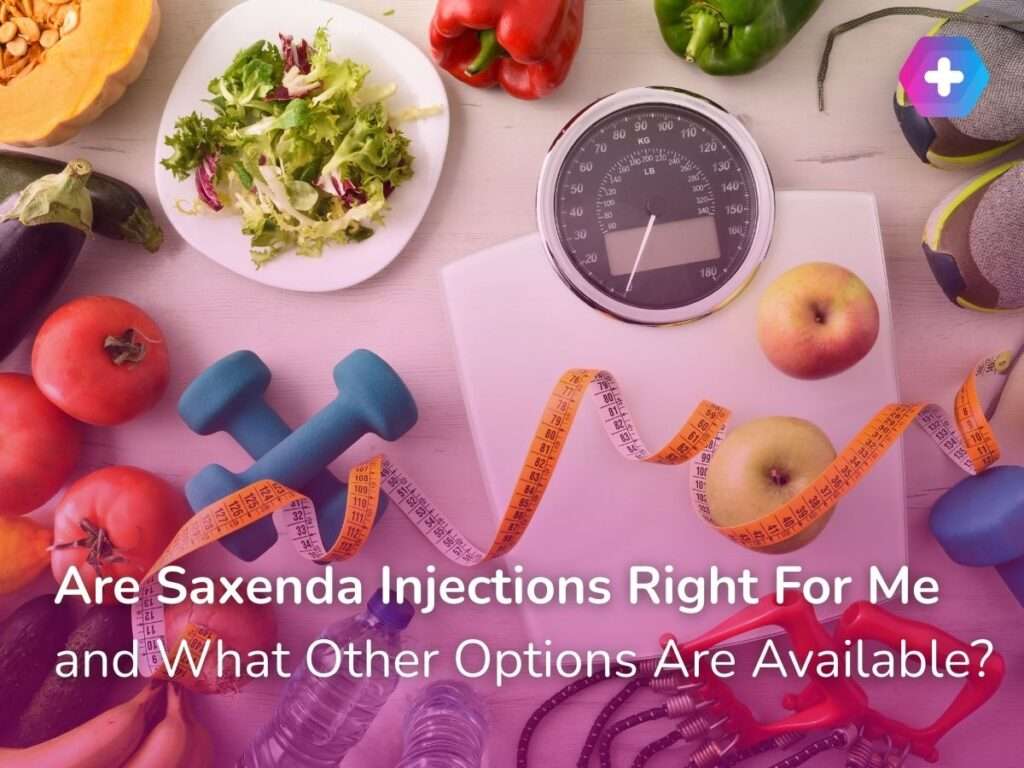Like all prescription medicines, Wegovy can cause side effects, especially during the early stages of treatment or when increasing the dose. While these symptoms are often temporary, they can still affect comfort and motivation, making it harder to stay consistent with your weight management plan.
Most side effects occur because Wegovy slows digestion and affects appetite signals, allowing the body to adjust to lower food intake. With the right approach and small lifestyle changes, these effects can be managed effectively without disrupting progress.
In this guide, we’ll share proven strategies to minimise Wegovy side effects, helping you continue treatment safely and stay focused on your long-term weight loss goals.
What Causes Wegovy Side Effects?
Wegovy contains Semaglutide, a medicine that mimics a natural hormone called GLP-1. This hormone helps control appetite, digestion, and blood sugar levels. By slowing down how quickly food leaves the stomach, Wegovy helps you feel full for longer and eat less, supporting steady weight loss.
However, this change in digestion is also what causes most of the common side effects. As your body adjusts, you may experience mild symptoms such as nausea, bloating, constipation, or diarrhoea. These usually settle as your body becomes used to the medication.
Common reasons why Wegovy side effects occur include:
-
Slower digestion – food stays in the stomach longer, causing fullness or nausea
-
Reduced appetite – eating less can temporarily affect energy levels
-
Dose increases – raising the dose too quickly may trigger stronger symptoms
-
Dehydration or diet changes – not drinking enough water or eating heavy meals can worsen discomfort
Following your clinician’s advice, staying hydrated, and introducing dietary adjustments gradually can help your body adapt and minimise these effects.
Start Slowly and Follow Dosage Guidance
Starting Wegovy at a low dose and increasing it gradually is one of the most effective ways to reduce side effects. This slow adjustment allows your body to adapt to the medicine and minimises issues such as nausea, bloating, or stomach discomfort.
Your clinician will usually recommend a gradual increase in dose every few weeks, based on how well you tolerate the treatment. Skipping steps or raising the dose too quickly can make side effects worse and may reduce your ability to stay consistent with treatment.
To make the transition smoother:
-
Follow your prescribed schedule carefully and do not rush dose increases
-
Monitor how your body responds during each stage before moving to the next
-
Contact your pharmacist or clinician if side effects persist or worsen
Taking a steady approach gives your body time to adjust, helping you stay comfortable and continue your Wegovy journey safely and effectively.
Manage Nausea and Digestive Discomfort
Nausea and digestive discomfort are among the most common side effects people experience when starting Wegovy. This happens because the medicine slows down how quickly food moves through your stomach, which can lead to feelings of fullness, heaviness, or queasiness after eating.
Fortunately, these symptoms can be reduced with a few simple lifestyle adjustments:
-
Eat smaller portions and take your time to chew food thoroughly
-
Avoid fried, fatty, or spicy foods that can irritate your stomach
-
Stay upright after meals for at least two hours to prevent acid reflux
-
Drink fluids between meals instead of during them to reduce bloating
-
Try ginger or peppermint tea to naturally ease nausea
Most people find that nausea and discomfort lessen over time as the body adjusts to the treatment. If symptoms persist, your clinician may recommend staying on your current dose a little longer before increasing it.
Prevent Constipation Naturally
Constipation is another common side effect of Wegovy, caused by slower movement of food through the digestive system. As digestion slows, the body absorbs more water from the stool, making it harder and more difficult to pass.
Simple changes in diet and routine can make a big difference:
-
Increase fibre intake by eating more fruits, vegetables, whole grains, and legumes
-
Stay hydrated by drinking enough water throughout the day to keep stools soft
-
Add natural fibre sources like chia seeds, oats, or flaxseeds to meals
-
Keep active with regular light exercise, such as walking, which helps stimulate digestion
-
Limit processed foods that are low in fibre and can worsen constipation
If constipation continues, speak to your pharmacist or clinician. They may recommend a mild, short-term remedy to provide relief while your body adjusts to Wegovy.
Reduce Bloating and Gas
Bloating and gas can occur when Wegovy slows down digestion, causing food to stay in the stomach longer than usual. This can lead to trapped air, a feeling of fullness, and mild abdominal discomfort.
These simple steps can help reduce bloating and make digestion easier:
-
Eat slowly and chew food well to prevent swallowing excess air
-
Avoid fizzy or carbonated drinks that increase gas build-up
-
Limit high-FODMAP foods such as beans, onions, and certain dairy products, which can cause bloating
-
Try peppermint tea or capsules to ease stomach cramps and gas
-
Stay active after meals with gentle movement like walking to support digestion
Bloating usually improves as your body adjusts to the medicine. If it becomes persistent or painful, discuss it with your clinician or pharmacist for further advice.
Stay Hydrated and Maintain Energy Levels
Dehydration and low energy are common early side effects of Wegovy. This often happens when people eat less or experience nausea, leading to lower fluid and calorie intake. Staying properly hydrated supports digestion, prevents headaches, and helps maintain steady energy levels throughout the day.
To stay balanced and energised:
-
Drink 6–8 glasses of water daily and sip regularly instead of drinking large amounts at once
-
Include electrolyte-rich fluids like coconut water or oral rehydration drinks if you feel lightheaded or fatigued
-
Don’t skip meals – focus on balanced portions of protein, fibre, and healthy fats
-
Limit caffeine and alcohol, as both can increase dehydration
-
Get enough rest and maintain a consistent sleep schedule to support your body’s recovery
Keeping hydrated and nourished will help your body adjust more comfortably to Wegovy, improving both tolerance and long-term results.
Communicate with Your Clinician
Regular communication with your clinician or pharmacist is key to managing Wegovy side effects safely. Everyone reacts differently to treatment, so staying in touch helps ensure your dosage and plan are adjusted to suit your needs.
The Care Pharmacy team is available to guide patients through their Wegovy journey with professional support at every stage. Our pharmacists can help you understand what side effects are normal, when to seek medical advice, and how to make small changes to improve comfort and consistency.
If symptoms continue or start to feel uncomfortable, let your pharmacist or clinician know as soon as possible. Our healthcare professionals will review your situation, offer practical solutions, and provide the right guidance to help you stay comfortable and continue your treatment safely.
The Care Pharmacy: Support You Can Rely On
At The Care Pharmacy, patients receive trusted, ongoing support throughout their Wegovy treatment. Our pharmacists offer personalised advice on managing side effects, ensuring safe access to genuine medication and clear guidance on dosage, nutrition, and lifestyle adjustments. With a focus on care and consistency, our team helps patients continue their weight management journey with confidence and comfort.
FAQs
What are the most common side effects of Wegovy?
Nausea, constipation, diarrhoea, bloating, heartburn, and tiredness are the most common side effects and usually improve with time.
When do Wegovy side effects usually start, and how long do they last?
They often appear within the first few weeks of treatment or after a dose increase and usually ease as your body adjusts.
Which Wegovy side effects are mild vs serious?
Mild: nausea, constipation, and headache.
Serious: severe abdominal pain, vomiting, or signs of pancreatitis. Seek medical help if serious symptoms occur.
How can I reduce nausea while taking Wegovy?
Eat small, light meals, avoid fatty or spicy foods, and stay upright after eating. Ginger or peppermint tea may help.
What dietary changes help with Wegovy digestion issues?
Eat smaller, balanced meals, avoid greasy or sugary foods, and drink plenty of water throughout the day.
Can I split or adjust the dose to lessen side effects?
No, only your clinician should adjust your dose. Follow the prescribed schedule.
Can Wegovy lead to gallstones or gallbladder problems?
Rapid weight loss may slightly increase the risk. Stay hydrated and lose weight gradually to reduce it.
How to manage constipation when using Wegovy?
Increase fibre, stay hydrated, and stay active. Ask your pharmacist about short-term remedies if needed.
Does Wegovy cause hair loss or skin changes?
Not commonly. Any hair thinning is usually linked to rapid weight loss, not the medicine itself.
Are there interactions with other medications or supplements?
Yes, Wegovy may affect how some oral medicines are absorbed. Always inform your clinician about what you take.
Will side effects decrease over time?
Yes, most side effects improve as your body adapts to treatment.
Can drinking water or staying hydrated help reduce side effects?
Yes, good hydration supports digestion and helps prevent headaches or constipation.
Is Wegovy safe during pregnancy or breastfeeding?
No, it should not be used. Stop treatment and speak with your clinician if you become pregnant.
How to safely stop or pause Wegovy if side effects are severe?
Do not stop on your own. Contact your clinician for advice on how to pause or stop safely.
Medically reviewed by
Mohammed Lakhi
Superintendent Pharmacist











